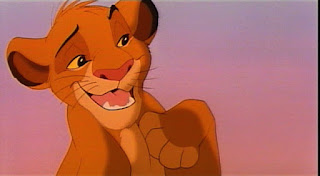Sound of Metal
At the age of 17, I caught Meningitis B which left me profoundly deaf in both ears. Subsequently, I was the first person in the UK to be fitted with bilateral cochlear implants; hearing aids that enabled me cope with this disability.
Going deaf as a young adult is a unique situation, as most deaf people are either born that way or as a result of old age. I've never met anyone who could relate to me, and there is nothing in popular culture which could help me explain to people how I felt, how I coped, how I hear now, and how it's taken me many years (plus therapy) to really accept my disability.
I recently watched Sound of Metal, an award-winning film starring Riz Ahmed, about a dummer called Ruben who loses his hearing and has his music-centric life completely turned upside down.
Unable to continue with their band tour, Ruben's girlfriend finds a deaf community where he can be taken care of and taught “how to be deaf”, whilst she returns home.
I can't recommend this film highly enough and it deserves to be seen by the widest possible audience.
Going deaf as a young adult is a unique situation, as most deaf people are either born that way or as a result of old age. I've never met anyone who could relate to me, and there is nothing in popular culture which could help me explain to people how I felt, how I coped, how I hear now, and how it's taken me many years (plus therapy) to really accept my disability.
I recently watched Sound of Metal, an award-winning film starring Riz Ahmed, about a dummer called Ruben who loses his hearing and has his music-centric life completely turned upside down.
This film touched me on so many levels that I had to share, if not to spread awareness of my "invisible disability", then just to recommend a fantastic film in general.
Riz perfectly captures Ruben's frustration at the sudden loss of, not only his hearing, but his independence, control and, dare I say, pride.
Riz perfectly captures Ruben's frustration at the sudden loss of, not only his hearing, but his independence, control and, dare I say, pride.
It's a strange experience going from being able to do everything, to suddenly not being able to do the seemingly smallest of things, such as make a phone call. Although everyone around you is incredibly kind and accommodating, such as making phone calls for you, it's undeniably frustrating to not be able to just do it yourself, like you used to. It can make you feel like a burden or a child, which then impacts your pride.
Unable to continue with their band tour, Ruben's girlfriend finds a deaf community where he can be taken care of and taught “how to be deaf”, whilst she returns home.
Ruben moving into this community creates many tensions; he sees himself as having a disability that needs to be fixed with cochlear implants, whereas the deaf community do not view being deaf as a disability, they take pride in it - so Ruben's desire to "fix" it is almost offensive.
When I went deaf, my doctors suggested I join a community but I refused - I didn't see myself fitting in with them and honestly, I didn't want to. I wanted to go "back to normal" and get back to everything I knew. I wanted to fit in again, because when you're 17, nothing is more important than fitting in.
The subject of "fitting in" is so raw for me in this film. Ruben no longer fits in with his music-loving girlfriend and his previous life in the hearing world, and he also doesn't fit in with the deaf community. There's a particularly poignant scene where he has his first meal with the community - they are all signing around the table at dinner and he cannot understand anything; his loneliness is so palpable.
Acceptance of a trauma, and giving yourself the time to do so, is a huge part of this film and it's something that's taken taking me years to do. Going deaf was a significant loss which I never let myself mourn. I didn't give myself time to grieve the end of my previous life, I was too busy living in denial, saying 'I'm fine!" and pushing those feelings down - leaving me with a bucketload of anxiety and self-worth issues, 18 years on.
Like Ruben, I rushed to "get back to normal", to get the cochlear implants and expect that to answer all the problems. Of course, they enable you to hear, but it's not the same. The devices allow you to hear sound, not tune. Music is not the same. The microphone points in one forward direction, so you can't hear behind you. All noises come in at the same level of volume. A busy road is overwhelming.
There is a scene where Ruben, with his new cochlear implants, hears his girlfriend sing. For him, it sounds awful. He can't hear the tune, the pitch, the melody. He pretends he loved it and compliments her.
I know this all too well. Masking the devastation of not being able to hear, by pretending you can.
By pretending your body works the same way it used to.
The importance of being able to sit with yourself and accept who you are, is stated early on in the film when the head of the community tells Ruben to stop with the distractions, and have a moment of stillness.
I think that the act of accepting yourself in general, flaws and all, is such an important message. Society and the media is constantly telling us to 'own who you are', 'love yourself', 'do you!", whilst still enforcing high expectations around who we should be and what we should look like.
No wonder we all want to fit in and 'be normal'... whatever the hell that means.
Not only does it educate, but it reminds us of cinema’s unique ability to challenge, entertain and unite.







Hi Laura thank you for sharing this inspiring story. I am sure your words will bring hope and optimism to anyone facing these challenges. You are amazing!
ReplyDeleteLast message was from Peter Harding
Delete